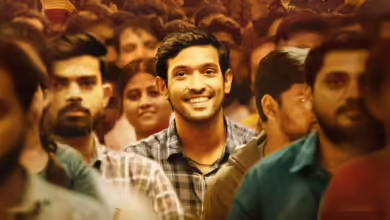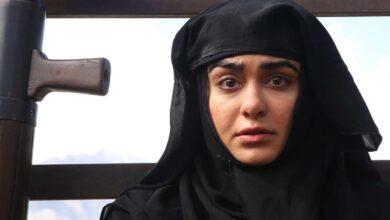How the “Made in Heaven 2” episode starring Radhika Apte sparked a plagiarism controversy
Reviews for “Made in Heaven 2” have been excellent. The show has received praise from all quarters. But there are some criticisms that come along with all the adulation. In a recent incident, a writer said that a particular episode of the program attempted to steal details from her memoirs and personal experience without giving her proper credit. The claims have been flatly rejected by the creators.
An novelist named Yashica Dutt recently claimed on social media that “Made In Heaven 2” producers had plagiarized parts of her life and writings for one of the episodes of the Amazon Prime Video series. The fifth episode in question features Radhika Apte, and Dutt believes that many of the incidents in the aforementioned episode are very similar to those from her life, which is described in her book “Coming Out As Dalit.”
What Yashica Dutt wrote is as follows:
Well, plagiarism scandals are nothing new for the Hindi film industry. Every Friday release since the dawn of time has been accompanied by allegations of the theft of scenes, music, or even whole narratives or concepts. People have accused filmmakers of stealing their ideas without giving appropriate credit, but in the interest of “inspiration,” filmmakers have been stashing such disputes to the side of the room.
In the relevant episode, Radhika Apte, a Dalit lady, is featured. Her family changed their last name so that they wouldn’t be recognized by their caste. The lady is now a respected university employee in the United States and no longer feels embarrassed to resume using her former surname. She is adamant on being married in a Buddhist ceremony, and just that gesture has been capturing hearts all over the world. It’s a fantastic coming-of-age drama in which many important contemporary social concerns are addressed, if not directly, then at least subtly during the whole wedding scene.
There are a few commonalities, however, that support Dutt’s assertion. The character played by Radhika Apte mentions how her grandmother used to scrub toilets by hand. In a previous interview, Dutt had also mentioned her grandmother in a similar situation when discussing the problems with the caste structure in the nation. Then, the figure played by Radhika Apte studied law at Columbia University and continues to teach there now. At Columbia University, Dutt earned her master’s degree. However, Radhika Apte’s persona has published a book titled “Denied” in which she only discusses coming out as a Dalit and adopting her old surname. ‘Coming Out As Dalit’ was the title of the book that Dutt penned.
Strange synchronicities, huh?
Not to mention that there are some notable disparities between the two parties in issue as well. While Dutt has really received the Sahitya Academy Yuva Puraskar, Radhika Apte’s portrayal has won the Amnesty Award. The two are pretty unlike to one another for the uninitiated. The episode’s main emphasis is pretty much entirely on Radhika Apte’s character getting married, which is another crucial element. However, Dutt is not yet married in real life.
The way Radhika Apte’s character was written and how the wedding was shown as a whole have both received praise for the episode. Undoubtedly, it’s one of the most exquisite wedding scenes ever captured on camera. By the conclusion of the show, you’re sure to be moved and teary-eyed. Even BR Ambedkar’s grandson Prakash Ambedkar came up to applaud Radhika Apte’s portrayal of a Dalit lady, praising the “assertion, defiance, and resistance” of the character.
The audience’s attention has been completely diverted from the show’s primary issue, which is wedding planners, as a result of this sudden plagiarism problem. The show’s creators, Zoya Akhtar, Reema Kagti, Alankrita Srivastava, and Neeraj Ghaywan, responded on social media in an effort to contain the damage. They have categorically refuted all of Dutt’s allegations. They wrote as follows:
An extract from their article said that the episode’s main dilemma was whether Pallavi should fight for the wedding rites, which served as a symbol of her identity, or not. None of the information presented here is based on Yashica Dutt’s life or book, “Coming Out As Dalit.” Any allegations that we appropriated Ms. Dutt’s life or work are unequivocally denied by us. In 2007, Mr. Sumit Baudh utilized the academic LGBTQIA word “coming out,” initially used in the context of Indian caste identity, for the first time. He made use of this in a piece for Tarshi. It was utilized in Ms. Dutt’s book ten years later. Since then, the phrase “reclaiming caste-identity” has entered popular use.
They continued to refute the accusations of plagiarism by saying that “Pallavi Menke’s (Radhika Apte’s character) fictional book, ‘Denied’ is a hat-tip to several books like Ants Among Elephants by Sujatha Gidla, Caste Matters by Suraj Yengde, Coming Out As Dalit by Yashica Dutt, and the Tarshi article by Sumit Baudh (sic).”
It is questionable if Yashika Dutt’s work was appropriated for the cinema without providing due credit or perhaps with her permission. But one thing is certain: Yashica Dutt’s situation is nothing new. It is a challenge that many authors have experienced in the past and continue to battle every day of the week. In the world of movies and television, it is nothing new. Many filmmakers lift and use things without permission, so your only option, if you have the time and money to wage a protracted legal struggle, is to knock on the doors of the courts. The others, who lack the resources to eliminate a powerful filmmaker, settle for at least attempting to express themselves fully on their own social media. In this manner, they at least find some consolation in the remarks made by others and in the media frenzy that surrounds the person’s name throughout the course of the next four to five days.
It would be fascinating to see whether Yashica Dutt chooses to pursue a legal claim in an effort to get what she feels is legally hers. Dutt hinted that there could be something in the works when he remarked, “I need to take time to process this and then figure out the next steps,” in an interview with Quint after the full episode.
It’s encouraging to see that at least the creators have addressed the issue and made an effort to cleanse their identities. so assisting in refocusing attention on the show and away from the scandal. Unfortunately, this is not the first issue in which the program has found itself. The well-known Indian fashion designer Tarun Tahiliani has complained that his clothes, which were mostly utilized in the Mrunal Thakur episode, were taken without his permission and were instead ascribed to a fake fashion designer on the program. Will the creators also be transparent about that? Well, time will only tell.







